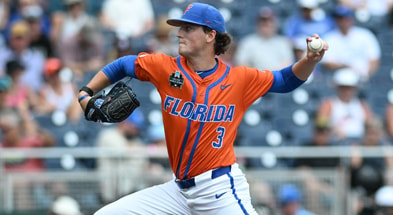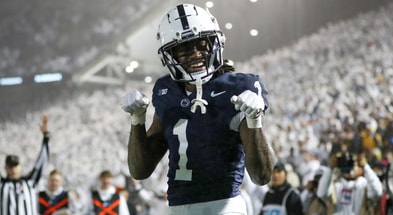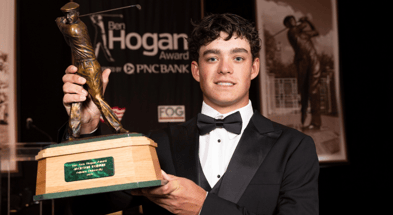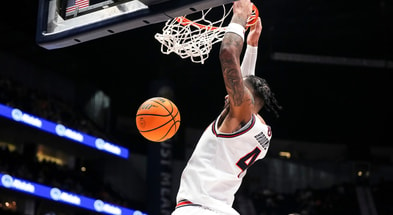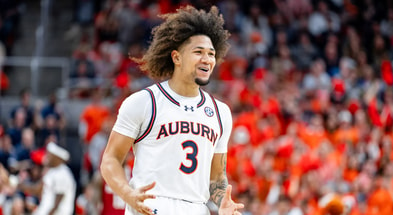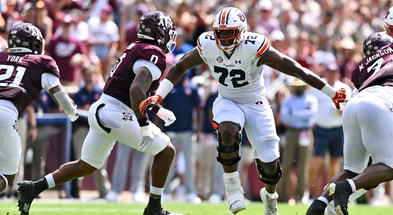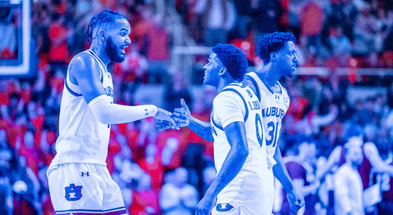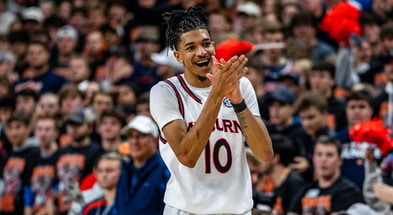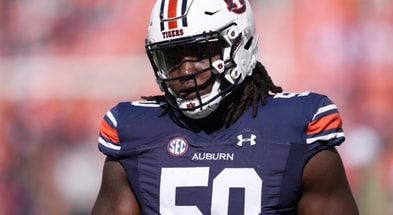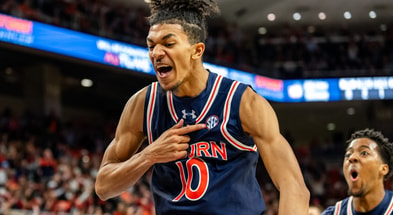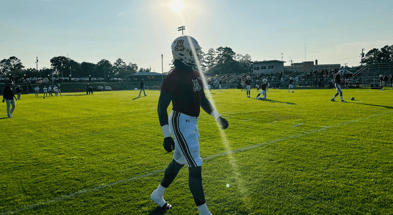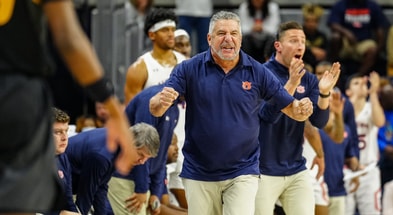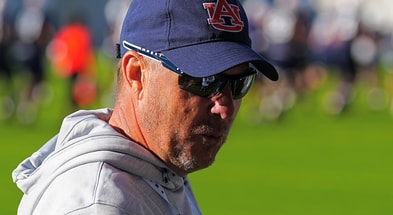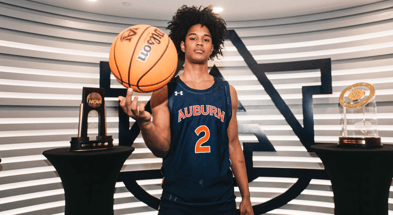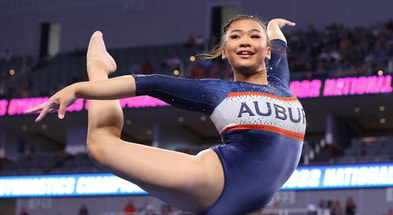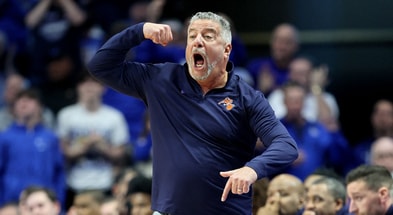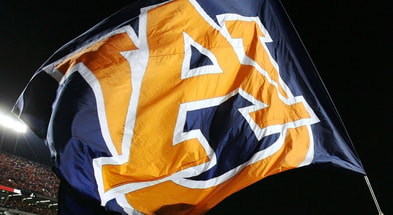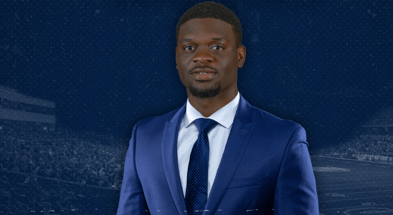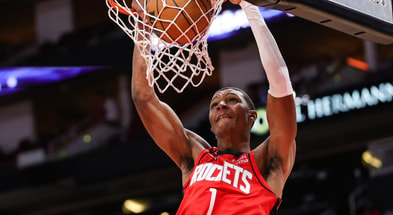Hugh Freeze, Bruce Pearl among Auburn representatives in D.C. lobbying for NIL uniformity
Auburn football and basketball coaches, plus administrators, are in Washington D.C. this week to help lobby lawmakers to pass legislation that will hopefully create Name, Image, Likeness uniformity. Auburn president Chris Roberts, Director of Athletics John Cohen, head football coach Hugh Freeze, head men’s basketball coach Bruce Pearl and head women’s basketball coach Johnnie Harris are in Washington D.C. on Wednesday representing Auburn University and athletics.
Rules around NIL and collectives already vary state to state. The state of Arkansas, for instance, has even proposed a bill that would allow high school athletes who have been admitted to or signed a letter of intent to attend an Arkansas college “to enter into a contract and receive compensation for the commercial use of the student-athlete’s publicity rights” immediately.
Congress has already held at least eight hearings on the issue in an effort to pass a federal NIL law that would preempt state laws like the one in Arkansas and establish uniformity among the states regarding the ability of student athletes to make money from endorsement deals.
Charlie Baker, the NCAA’s new president, claims the NIL landscape is unregulated. Auburn’s Cohen has frequently echoed those sentiments in recent months. Meanwhile, the NCAA wants Congress to grant it an antitrust exemption that would supersede state NIL laws.
Cohen told Auburn Live in February, “I’m a big believer that student-athletes deserve an opportunity to make, have resources based on their NIL. I do think this thing has wandered off to the edge a little bit, and I don’t think any Power Five athletic director would disagree with that. We need guardrails, we need a much more simple approach.”
Auburn’s NIL collective On To Victory sits at around 1,000 paying monthly members and has raised around $20 million to date for student-athletes.
Hugh Freeze is greatly concerned about tampering and NIL regulations as things stand now.
“How do you change that,” Freeze said at recent SEC spring meetings in Destin, Fla. “That’s way beyond my ability to think through it probably. I think it’s for coaches that have been in for a long time, and I haven’t been in the SEC as long as the others but it’s a different dynamic to the transactional way versus the old way of this process is going to help you be better as a man, as a player, in life. You’re gonna learn lessons and they’re hard lessons sometimes. They’re difficult and you got to stick with it and you got to fight through it. And you got to work your way up the depth chart, it’s gonna pay you dividends later on. We all, I think, worry a bit. It’s a greater challenge now.”
Freeze even talked about tying NIL monies to academic success or benchmarks.
“I don’t know who had the idea of, hey, let’s be proactive with this and let’s just put $50,000 a year to an account after the freshman is academically successful,” Freeze said. “And sophomore year 75 After that, and then maybe 100 after his junior year and when he graduates with his degree, that money is sitting there in an account for him to start his life with whether it’s NFL or not. You know, I think back to all those discussions and it just makes you think ‘Man, I wish we could have really seen all of this coming,’ and maybe put some parameters around it but they say it the horses left the barn now.”
Basketball is no different with NIL, as Pearl noted during a recent Auburn alumni event in Alabama. If a school isn’t fully invested in creating premier NIL opportunities for student-athletes, Pearl understands that program will be left behind.
“It’s a dogfight. Everybody is investing, everybody is playing in the NIL space which has made things more competitive,” Pearl said. “Everybody is committed. Who isn’t all in in the SEC? There’s not a single school not completely committed. Facilities, coaches being hired, it makes finishing in the upper part of the league and making the NCAA Tournament a bit of a prize.”
More from On3 Sports’ Pete Nakos on what’s happening in D.C.
RELATED
A group of five Power 5 collectives, administrators and coaches are making the trip to Washington, D.C., this week, with plans to lobby lawmakers to pass legislation helpful to NIL. Collectives have operated on a patchwork of state laws and the NCAA’s interim policy for nearly two years.
And up to this point, nearly every bill drafted to address name, image and likeness has favored the NCAA’s point of view. Very little attention has been spent on giving athletes more rights or creating a sustainable structure for collectives.
Tennessee, Ole Miss, Washington, Clemson and Georgia’s collectives will be in attendance helping lobby for NIL changes and representing collectives from across the country.
The trip to Capitol Hill coincides with the University of Arizona’s Future of College Sports summit, which will be held Wednesday and Thursday. Guests currently include NCAA President Charlie Baker, ACC Commissioner Jim Phillips and SEC Commissioner Greg Sankey. The collectives will have time with lawmakers during a three-hour, open-house reception at the U.S. Capitol.
Over the first 23 months of the NIL era, collectives have popped up across the country. The donor-led organizations competing to raise the most funds to attract high school recruits and retain athletes looking at the transfer portal.
“We are eager to engage in worthwhile conversations around these topics with regard to how revenue will be distributed in the future,” the collectives told On3 in a statement.
Collectives plan to vouch for athletes
The five collectives traveling to the nation’s capital are arguably some of the most competitive in the space. This is one of the first times there has been a concerted effort to organize collectives. In recent weeks, there have been murmurs of a trade association forming to lobby on behalf of collectives.
Walker Jones, the executive director of the Ole Miss-focused Grove Collective, is set to speak on the “NIL: What is the state of play?” panel during Arizona’s summit. Many collectives have been hoping for a chance to get their talking points in front of legislators. Multiple leaders On3 has spoken with believe it is on them to be a voice for athletes.
The U.S. House’s Innovation, Data and Commerce subcommittee hearing back in March on NIL was missing a current Division I basketball or football player. The NCAA’s model has undergone so much change in the last two years that there has been close to no governance. Athletes can turn a profit, but they’ve been forced to navigate an unprecedented landscape.
“We are honored and excited to take part in this very important conversation around the future of name, image and likeness with the various stakeholders in collegiate athletics,” Jones said. “It is a critical time in the evolution of NIL, and we are confident that the perspective from our group of collectives can help add value and direction towards a sustainable model for all parties.”
How do collectives fit into future NCAA model?
Many stakeholders believe the NCAA is growing closer to a model where the athletes who are generating revenue will have a share. The California Assembly voted to approve legislation last week that would allow college athletes to receive payments from their schools; the bill now moves to the state Senate.
A drafted bill from the office of Sen. Lindsey Graham that On3 received from a source last month would establish an NIL clearinghouse, which would have the power to fine anyone, sue anyone and ban anyone from participating in college athletics.
The piece of legislation would try to bring down collectives, too.
“Ultimately we all want what’s best for student-athletes,” Spyre Sports president Hunter Baddour said. “We look forward to contributing to solution-based conversations regarding NIL and the future of college athletics.”
The Big Ten and SEC are positioned to be successful if college athletics does move to revenue sharing, as the conferences currently have the two richest TV deals. The five collectives traveling to Washington, D.C., represent the ACC, Pac-12 and SEC.
They also have the support of Tennessee quarterback Joe Milton.
“Thanks to NIL, college athletes are finally able to help financially support themselves and potentially their loved ones during their time in college,” he said. “As we face the future of NIL, it’s important that athletes have a voice to ensure they’re in a position to capitalize on what may be the most valuable three or four years of their lives. When tomorrow isn’t promised, we need to be able to make the most of every day.”
The collection of organizations spending time with lawmakers and power brokers this week represents the different types of collectives in college athletics. Spyre Sports is a marketing firm, which operates the two leading Tennessee collectives: the for-profit Volunteer Club and the non-profit Volunteer Legacy.
Classic City Collective is donor-supported and has facilitated endorsement deals for Georgia athletes. Both Montlake Futures and TigerImpact are registered 501(c)(3)s, providing financial opportunities for athletes who participate in charitable activities.
“As NIL collectives have become a major part of the market over the last two years, it’s critical that those who operate the collectives have a voice in this discussion to inform stakeholders and help guide college athletics to a new era where beloved traditions meet exciting innovation,” TigerImpact co-founder Kevin Gemas said.
